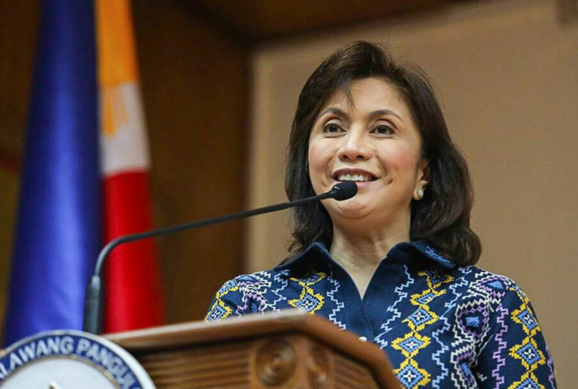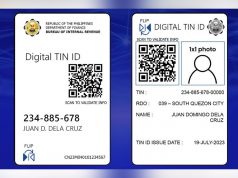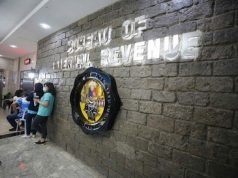MANILA – Vice President Leni Robredo is calling on the public to pay the right taxes so they can ease the suffering of the poor, especially those living in remote areas, who depend on the government for social services.
“The needs of any nation with a growing population like ours are huge, and resources are, always, not enough,” Robredo said at the launch of the Seal of Honesty certification program on Wednesday at the Makati Shangri-La Hotel.
“Taxes can ease the suffering of our people. Let me qualify that: honest payment of taxes can adress the needs of our people, especially those in the fringes of society. Those who, for the longest time, have been voiceless and powerless. Those living among the last, the least, and the lost,” she said.
The Vice President narrated her recent visit to Punta Tarawal, the farthest and poorest municipality in the 2nd District of Camarines Sur, which she had represented when she was still a congresswoman. It is a place along San Miguel Bay and near Bicol River, still not accessible by land because there are no roads. It is a flood-prone area, too, with students having to endure wading in water up to their knees when they are in the only school in the area, and a dilapidated one, at that.
On Wednesday, Robredo was happy to report that finally, a two-storey building for Punta Tarawal Elementary School had been built through the help of AGAPP Foundation (Aklat, Gabay, Aruga, Tungo sa Pag-Angat At Pag-Asa), Golden ABC Penshoppe, Matimco, and Boysen. Its sturdy walls and PVC windows could finally withstand typhoons.
Nevertheless, there were still many challenges ahead. Robredo quoted Department of Education District Supervisor Roberto Bayonito, who had been assigned to the school, as saying it was taking too long to request for one teacher per grade level. Presently, only three teachers handle the pupils from Kindergarten to Grade Six.
“The residents of Punta Tarawal live a hard life, like many of those who live in remote and poor towns across our archipelagic country. But their stories of poverty, suffering, and missed opportunities are not unique. So many of our people are in dire need of better schools, more farm-to-market roads, sturdy bridges, quality highways, and well-functioning airports, among others. They also need hospitals and doctors, well-trained teachers, and disaster response teams,” Robredo said.
This is why, she said, she advocated the correct and honest payment of taxes. Residents in isolated barangays are fully dependent on the government for social services, not having the benefit of interventions from the private sector that thrives in urbanized areas like Metro Manila. The government, meanwhile, is dependent on tax collection.
The Vice President acknowledged, however, that many taxpayers are loath to part with their hard-earned money when they sense it would just be used to line the pockets of government officials.
“Why must businesses absorb the costs of corruption?” she asked.
But, she insisted, taxpayers could not wait for the country’s corruption ranking to improve before they pay the right amount of taxes.
“Because our people are suffering. They cannot afford the delay of firetrucks or ambulances or doctors or schools, among other things,” Robredo explained.
Seal of Honesty
She saw the Seal of Honesty as an innovation that could solve this dilemma.
“It allows government to create a bridge of trust and good will that paves the way for honesty in tax payments,” she said. “Imagine what will happen if our small to big corporations, our professionals and our businessmen, truly adopt a culture of honesty and integrity in their tax payment behavior? Perhaps that might even allow areas like Punta Tarawal to have its own hospital, its own high school, even perhaps wifi, which is now seemingly the sixth item in Maslow’s heirarchy of needs.”
The Seal of Honesty was crafted by the Center for Strategic Reforms of the Philippines (CSR Philippines), in partnership with the Bureau of Internal Revenue (BIR), the Department of Trade and Industry (DTI), and the Integrity Initiative.
Both individual and corporate taxpayers could apply for the certification, but they must first commit to perform the following actions:
1. Settle all open cases and pending assessments;
2. Observe full and honest compliance with all BIR regulations and requirements at all times;
3. Sign the Integrity Pledge to promote and uphold honesty and integrity in paying taxes, and in dealing with all government agencies, customers, and suppliers without compromises;
4. Commit not to bribe or to stop bribing BIR examiners; and
5. Increase voluntary compliance by at least 20 percent in total tax payments for those who are regularly audited by BIR, based on the level of their compliance.
“Rather than look for loopholes in order to pay less, we (citizens) should all be working together to raise income and generate employment in order to be able to pay more of the correct level of taxes to the government,” wrote CSR Philippines Chairman Emeritus Dr. Jess Estanislao in a pamphlet about the certification program.
For his part, BIR Commissioner Caesar Dulay admitted that there were some “bad eggs” in the agency, which is why he urged the public to pay the correct taxes to the government, and not to corrupt BIR personnel, as part of creating a new culture of integrity and honesty when it came to paying taxes.
He made these pronouncements in a video shown at the launch.










